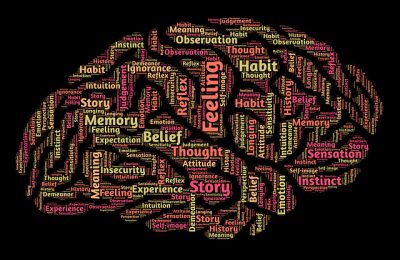Top 10 skills trending in 2022
25th May 2020
The World Economic Forum’s Future of Jobs Survey 2018 predicts the trending skills for work in 2022. These predicted skills are a response to the emergence of the Fourth Industrial Revolution.
The Fourth Industrial Revolution reflects a generational shift in the way we work, mainly down to huge advances in technology. As we move further into the 2020s, and beyond, the pace of this technological change is expected to quicken across all job sectors. Humans will need to;
- continuously adapt to new, cutting edge technologies
- work with an increasing amount of data (big data and smart data)
- be more flexible in work as technology becomes ever more mobile, allowing us to do what we need to do virtually anywhere
- work alongside and with the Artificial Intelligence (AI) that will eliminate many of the tasks we do now
- adapt to our heads being virtually ‘in the clouds‘- clouds of the iCloud kind (other cloud brands are available)
This might all seem a little far-fetched, but just think about our experiences during the coronavirus lockdown.
How did you continue to learn whilst schools were physically shut? Did you access a virtual classroom or use an educational app? How many of you used House Party or Zoom to socialise with friends? How many people do you know who worked from home on laptops, instead of going into a workplace?
All of this virtual learning, socialising and working was made possible because of our recent advances in technology. Furthermore, we have found out that virtual working is possible on a global scale. As a result, a lot of these new digital working practices will be here to stay. Of course, some of these virtual practices were already here and they would have become increasingly common over the next few years. This lockdown has simply brought it all to the fore and gave us a sneak peak of the future as the Fourth Industrial Revolution progresses.
Take Jack Dorsey, the CEO of Twitter. In May 2020 he stated that his employees will be able to work from home forever rather than get up and travel to Twitter’s offices everyday. Or take Cambridge University who have decided that no face-to-face lectures will happen during the 2020/21 academic year. Both are high profile examples of how the coronavirus lockdown will have a lasting legacy in how we go about our daily lives. The technology exists now and we know it works. The future is now.
So now that we have set the scene, here is the Top 10 skills trending in 2022, according to the World Economic Forum (against each skill, we have provided a short definition followed by some pointers on how to show that you have the skill or how you can develop it further).
Top 10 skills trending in 2022
1) Analytical thinking and innovation- can you break complicated problems down into smaller parts and take a step-by-step approach? Are you able to quickly solve problems and come up with new ideas and innovate?
How can you demonstrate this? There are several school subjects in which you regularly use these skills including Design & Technology, Computer Science, Art & Design and Math. Or, perhaps you have done a project at home like building a garden wall or renovating a car. Or maybe you have a hobby like model-making, building gaming computers or baking cakes (this could be a small enterprise).
2) Active learning and learning strategies- to be successful in the future and be able to use and manage advancing technologies, we are going to have to engage in life-long learning.
How can you demonstrate this? Try thinking about the time when you have done something new e.g. learnt to play the guitar, taken sewing classes, been shown how to use a saw by a relative, or used an app to learn an emerging language like Mandarin, Arabic or South Korean. In school and at home, you might have developed your own learning strategies, ones that works best for you.
3) Creativity, originality and initiative- creative people are becoming increasingly sought after. However, creativity is not just about being good at art, it is also about how you think. For example, you can be a creative thinker, but not be a great painter or graphic designer. Instead you might be someone who sees things differently, can suggest new, original ways of doing things and pushes their ideas forward (i.e. using your initiative).
How can you demonstrate this? You might be studying creative subjects at school or you might have other interests that require you to think differently e.g. experimental cooking at home or engaging young children in creative ways to keep their attention. Or, perhaps you have volunteered your time and came up with ideas on how to save a local facility or valued service in your community.
4) Technology design and programming- this skill is most relevant for specific jobs e.g. those within the fast growing I.T. and Digital sector. However, knowing that this sector is one of the fastest growing areas of work in the world, might encourage you to take up an I.T. related qualification or training (it is never too late to do this and you do not need to have studied an I.T. qualification at school to do so in the future).
How can you demonstrate this? Clearly, studying Computing or Design & Technology is one way, but Math provides much of the underlying knowledge for further study. Outside of school, you might be a keen gamer and, as a result, have taught yourself coding- starting out on Scratch and progressing to more complex languages like Python.
5) Critical thinking and analysis- to think critically, we need to be observant (see what is going on), be able to interpret things (understand what is being meant), be reflective (take a step back and think things through), be able to evaluate (weigh up evidence), be analytical (break things down) and be able to explain yourself. If we are able to think critically we can make better decisions.
How can I demonstrate this? Maybe you had to present an argument from a particular viewpoint in English, Geography, History or R.E. Or, you might just like debating with others- this could have led to local involvement in grassroots politics. This can also be evidenced by any complicated or difficult decision you have had to make e.g. subject choices at school.
6) Complex problem-solving- complex problems are those that are often hard to define or they are just too big to solve on our own. For example, how do we solve a worldwide problem like coronavirus or global warming. People who are complex problem solvers come up with ideas, are very knowledgeable and, crucially, can collaborate and work with others to share these ideas and knowledge, ultimately coming up with solutions.
How can I demonstrate this? Think about specific projects or group work in school when, as a team, you had to come together to solve a problem. Perhaps you have been involved in an engineering or science challenge, representing your school in a regional or national competition. Maybe you have done a Duke of Edinburgh award and taken part in a team challenge? Similarly, away from school you might be a member of the Scouts or the Air Cadets and have done some team orienteering.
7) Leadership and social influence- are you a leader? Have you directed and guided willing people to a particular decision or outcome? Leaders take people with them, not bully or force others to do things against their will. In terms of social influence, this skills is about accomplishing something for the greater good- the good of a team, a school, a community, a neighbourhood, a country or even the world.
How can I demonstrate this? One of the most obvious environments where leadership is evident is team sports. However, it is about taking the lead in any situation e.g. you might have set up a Go Fund Me page for a local community centre struggling to stay open. Or you might have organised a fundraising activity for a national cause or charity.
8) Emotional Intelligence (EI)– people who have high EI are able to display empathy for others, know what to say and when to say it, can deal with difficult situations and appreciate the opinions of others. Emotionally Intelligent people are also better placed to manage their own emotions, health and well-being in work and in life generally. They are also more resilient, a very important quality in these uncertain times.
How can I demonstrate this? Think about what you do for other people? What do other people think of you? Are you the friend who other people come to for support or a shoulder to lean on? Perhaps you have a strong set of social values and do a number of hours per week volunteering in a local residential care home, for example.
9) Reasoning, problem-solving and ideation- is to think about something in a logical way to come up with a conclusion or an answer. For example, what is your reasoning for choosing those A-levels? Good reasoning allows us to solve everyday problems and more complicated ones. The process of reasoning can lead to ideas about how to solve a particular problem e.g. what are the best A-levels to study for a degree in Engineering? Or, what are the alternative pathways to Engineering, because I don’t want to study A-levels?
How can I demonstrate this? You should be able to describe your reasoning process i.e. this is what I had to consider, this was the problem and these were the options as I saw them. As noted above you could give your reasoning for choosing subject. Or, as a student designing a useful gadget, you might explain your reasoning for choosing one specific material or design over another.
10) Systems analysis and evaluation- is a problem-solving technique that ensures that a specific system works and, if it doesn’t work, how the system can be improved. Remember analysis involves the breaking down of big things into parts. So in systems analysis it is about breaking down a whole system into its components and analysing and evaluating the performance of each individual part.
How can I demonstrate this? Systems analysis is mathematical and therefore Math is the most relevant subject. You might show the skill by explaining how you broke down a complicated equation into smaller parts to get an answer. Systems analysis is also be applied in Science, Computing and Design & Technology. Away from school a systems analysis approach can be applied to lots of other things e.g. you might own and maintain bikes. The system for maintenance includes taking the bike apart, cleaning it, replacing parts and putting it back together. At each step you might make changes to improve performance?





